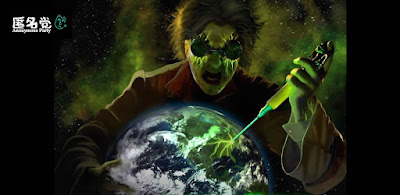Brian Wilson Aldiss, OBE (/ˈɔːldɪs/; 18 August 1925 – 19 August 2017[1]) was an English writer and anthologies editor, best known for science fiction novels and short stories. His byline reads either Brian W. Aldiss or simply Brian Aldiss, except for occasional pseudonyms during the mid-1960s.
Greatly influenced by science fiction pioneer H. G. Wells, Aldiss was a vice-president of the international H. G. Wells Society. He was (with Harry Harrison) co-president of the Birmingham Science Fiction Group. Aldiss was named a Grand Master by the Science Fiction Writers of America in 2000 and inducted by the Science Fiction Hall of Fame in 2004. He received two Hugo Awards, one Nebula Award, and one John W. Campbell Memorial Award.[2] He wrote the short story "Super-Toys Last All Summer Long" (1969), the basis for the Stanley Kubrick-developed Steven Spielberg film A.I. Artificial Intelligence (2001). Aldiss was associated with the British New Wave of science fiction.[3]
Wells's earliest specialised training was in biology, and his thinking on ethical matters took place in a specifically and fundamentally Darwinian context.[8] He was also from an early date an outspoken socialist, often (but not always, as at the beginning of the First World War) sympathising with pacifist views. His later works became increasingly political and didactic, and he wrote little science fiction, while he sometimes indicated on official documents that his profession was that of journalist.[9] Novels like Kipps and The History of Mr Polly, which describe lower-middle-class life, led to the suggestion that he was a worthy successor to Charles Dickens,[10] but Wells described a range of social strata and even attempted, in Tono-Bungay (1909), a diagnosis of English society as a whole. A diabetic, in 1934, Wells co-founded the charity The Diabetic Association (known today as Diabete
Herbert George Wells was born at Atlas House, 46 High Street in Bromley, Kent,[11] on 21 September 1866.[4] Called "Bertie" in the family, he was the fourth and last child of Joseph Wells (a former domestic gardener, and at the time a shopkeeper and professional cricketer) and his wife, Sarah Neal (a former domestic servant). An inheritance had allowed the family to acquire a shop in which they sold china and sporting goods, although it failed to prosper: the stock was old and worn out, and the location was poor. Joseph Wells managed to earn a meagre income, but little of it came from the shop and he received an unsteady amount of money from playing professional cricket for the Kent county team.[12] Payment for skilled bowlers and batsmen came from voluntary donations afterwards, or from small payments from the clubs where matches were played.
まじクリケットなんぞとは無縁の日本ヤバスですなあ・・・(爆wwwwwwwwwwww

1 件のコメント:
降雨勘弁して下せぇ
恵の雨なんかじゃねぇし汚染されるだけだし
て叶ってお日様出ました~に
ビール‼!‼!酒~~ で夏感じてます、うぇーぃ 国民じゃ
(少なくともそれをTV Newsに撮らせてるようじゃ)
cricket寄付きもしないだろね
9月新学期制かなんかを機に英教師を英国人かつ
クリケット経験者雇用にしたらいいのに とか思ってたんだけど
ムズぃかなぁ
コメントを投稿